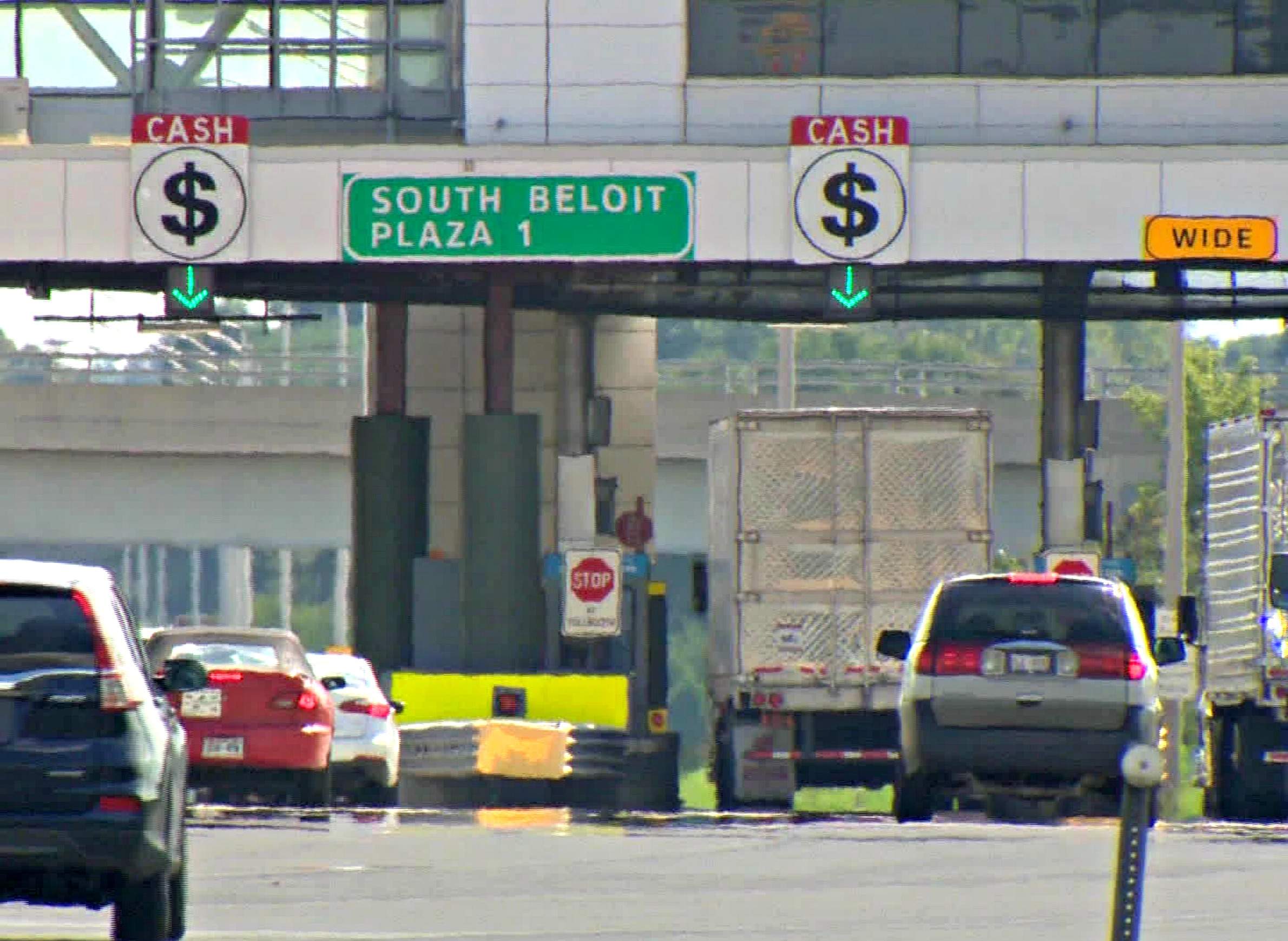
The View On Toll Roads, From A Janesville Rest Stop

Illinois has tolled interstates, Minnesota has tolled express lanes, and now these types of roads may be in the works for Wisconsin. As visitors from both neighboring states drive through Wisconsin every day, Gov. Scott Walker and Republican leadership in the state legislature remain in the middle of a budget impasse. Walker said he's open to toll roads, but some legislators are instead pushing for an increase in gas taxes and vehicle registration fees.
But how does the issue look if you leave the capitol and visit an interstate rest area? Wisconsin Public Television's Here & Now did just that for a June 16, 2017 report, speaking with two Minnesotans and two Illinoisians at a rest stop in Janesville. These travelers' brief remarks help to illuminate some of the nuances of the debate over tolls.
How should the money be used?
Connie Hartshorn, a Minnesota resident, said she's not opposed to the idea of toll roads as long as they're on major highways and the revenue generated from drivers is dedicated to maintaining their upkeep. Indeed, the federal government generally restricts the use of toll revenues to funding the maintenance of these roads and to paying off the cost of financing their initial construction. Elected officials and commentators in Wisconsin have long complained about using transportation money for non-transportation purposes, or conversely, using money from the state's general fund to pay for transportation costs.
That transfer of funds could still happen if Wisconsin adds toll roads, but at least one form of transportation revenue would be tough to divert. Toll-road opponents have detailed how private companies involved in their operation make a profit, which in the bigger picture means the public is putting up money for infrastructure that isn't necessarily always going back to that purpose.
Will they make the ride smoother?
Illinois resident Gary Joseph told Here & Now that he thinks toll roads are better maintained than non-toll highways, saying a stretch of I-43 he often travels is "like a rumble strip for about 60 miles." Anyone who's taken a stop-and-start drive through the seemingly perpetual construction on I-90 between Beloit and Chicago might even say toll roads are too well-maintained.
The fact that tolls provide a road-dedicated source of revenue lends some credence to this assertion. If Wisconsinites grumble about tolls in Illinois, the condition of their own roads might be seen as payback to out-of-state visitors.
Haven't people paid already?
Turning an existing section of highway into a toll road brings privatization, or at least some air of exclusivity, to a long-maintained public investment. States also have to spend a lot of money and gain federal approval before they see the first dime or cashless-tolling transaction. These costs are often a sticking point for people who oppose toll roads from the left, but conservatives and libertarians also have a fraught relationship with the political and economic principles at work with their use.
Ninad Ranade, of Illinois, offered a common anti-tolling argument when he pointed out to Here & Now that people already pay taxes, and tolls place "an extra burden on the public." Minnesota resident William French took a broader view of how roads impact everyone — and not just everyone in a motor vehicle: "It seems to me that the highways serve the public good and not just the people that are traveling on it."
State legislators and Walker have argued over whether to raise gas taxes and vehicle registration fees or to borrow more money to pay for road projects. The first two would increase the cost to drivers, and the third option would increase the state's long-term financial burden in the form of debt service. But if the state budget doesn't come up with a lot of extra transportation money somehow, neglected roads will continue to deteriorate, impeding the shipment of goods and beating up vehicles. At this point it seems Wisconsinites will pay for their roads twice — at least — no matter what happens.


